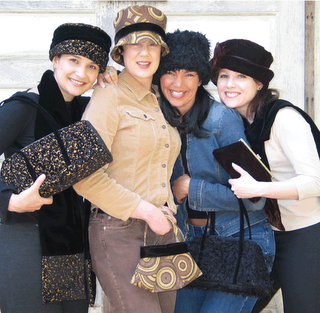Often people mean well, but say things that aren't appropriate, or aren't helpful to the grieving person(s). I have always hated when people say "S/he is in a better place. .. is not suffering." and the clincher "It was God's Will." I shudder at that one. I will admit. I used to be an offender and use these exact phrases ... but since I took a course in my training where we used a book call "The Will of God" I have learned what that really means. The Will of God.
For centuries, the human mind has sought to understand the meaning and purpose of existence. How did the world/universe come to be? Why? What are we to do here? What is the meaning of life? of suffering?Throughout the years, humanity has answered these questions with various theories.. Let's look at the question of meaning and purpose of life, and the place that suffering/death have in it. This could go anywhere, I know. But I will look at it from a theological perspective as pertains to the concept of Will of God put forth in Weatherhead's writings.
He basically says that God did not intend for these "things" to happen. That this is not the world that He created and thus this is not how we were meant to live. Is God in control now? Yes. Why doesn't He just fix it then? Wave the magic wand and make it all different...? Because that would go against the laws set forth in Creation.
In the words of another writer
Dr. Weatherhead separated God's will into three parts: 1) Intentional; 2) Circumstantial, and 3) Ultimate (ICU).
1. God's INTENTIONAL WILL is for our good. This is Adam and Eve in the Garden. When God created Adam and Eve, it was His intention that they live forever and be happy. But they sinned and were expelled from Paradise.
2. His CIRCUMSTANTIAL WILL is because of the circumstances in our lives. It is within this will that we find God's permissive will. This is Jesus in the Garden of Gethsemane. This is Job 42:2: "I know (faith) that you can do all things; no plan of yours can be thwarted."; It is the all of Romans 8:28, that glorious rod and staff of the grieving: "We know that God causes all things to work together for good to those who love God, to those who are called according to His purpose." I know (wisdom) I can (possibility) do (accomplishment) all things whatsoever He asks!
3. His ULTIMATE WILL is for His glory and our good. This is Christ's resurrection and our resurrection. It is us all in the New Earth.
The wonderful revelation as I read this book is that God's intentional will finally becomes His ultimate will, even as we go through the circumstances of our life. Dr. Weatherhead gives the example of the young man in London whose intention was to be an architect but, because the war changed his circumstances, he joined the Army. At the time this was the honorable course. The young man could not control the evil circumstances of Hitler and his desire to conquer the world, but he could control his reaction to them.
As I read the book I was comforted in the fact that nothing falls outside the circle of Divine Providence:
1) the knowledge of God embraces it;
2) His power is sovereign over it;
3) His mercy holds it creatively.The key here is God's goodness. The parent does not will evil for his or her child; neither would a perfect God will evil for His children. At the time Dr. Weatherhead gave his talks, the people in England needed desperately to know that there was a living and loving God in spite of the horror going on. We need to understand God's will and its components before we tell the person prostrate with grief that "It's God's will." As I read this incredible treatise, I viewed us as being in God's ICU unit and God taking care of us as only He can do, no matter what our circumstances.
From reading this book by Weatherhead, it changed my thinking about "will of God." I was taught as a child that God is in control. I was also told about fairies, magic, and superheroes. I thought God was like a superhero, trying to save His doomed Creation from messing up even more of their precious existence. Irony is that God is in control but not the way we think He is... I will write more on this... (when my wedding is over!!)







